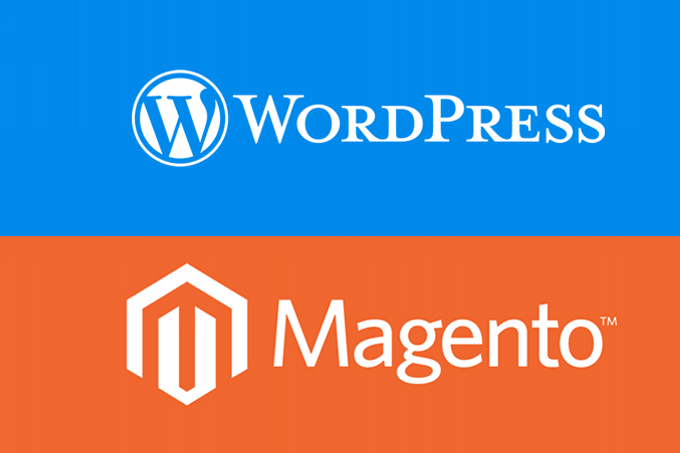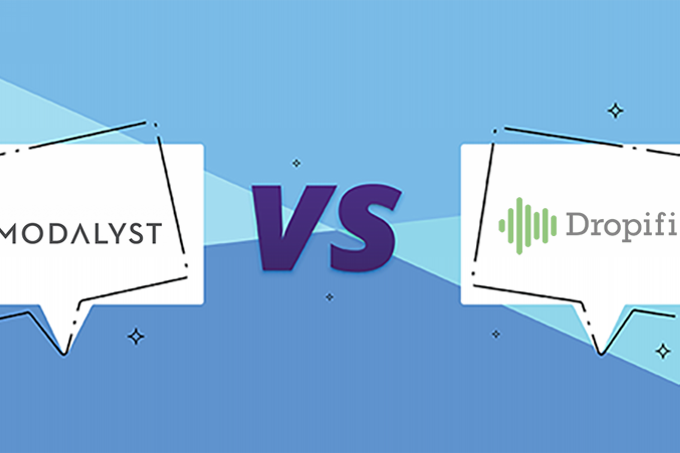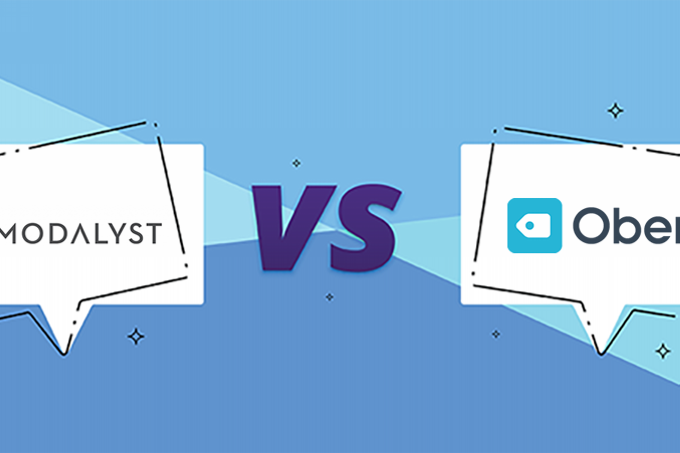When you have excessive aspirations in your retailer, both WordPress or Magento may very well be the reply. So, on this overview, we’re evaluating the 2 to see which comes up trumps.
The battle for the very best ecommerce resolution rages on. It’s difficult to seek out the precise platform in your on-line enterprise when so many various instruments are preventing for management.
Nevertheless, with WordPress powering almost 40% of the web, it is unsurprising that WordPress’s ecommerce resolution, WooCommerce, is a robust contender – and for a great motive! In spite of everything, WooCommerce enjoys all of WordPress’s flexibility and a near-endless plugin listing!
That stated, one other platform that packs a substantial punch is Magento. Magento markets itself in the direction of internet professionals and bigger shops by providing one of the spectacular characteristic suites within the discipline.
There’s tons to cowl, so let’s get right down to it!
Magento vs WordPress: About WordPress
WordPress.org is a sturdy CMS and highly effective running a blog platform. Because of its open-source nature, customers get pleasure from near-on limitless customization choices. In addition they profit from an lively on-line group, 1000’s of add-ons, and simply as many customizable.
To get began with ecommerce utilizing WordPress, it’s worthwhile to set up WooCommerce. That is a web based retailer extension explicitly created for WordPress web sites, and, as such, it is as versatile because the preliminary framework. WooCommerce provides a storefront, procuring cart, and checkout to your WordPress website and offers loads of retailer administration options to assist broaden your ecommerce enterprise.
For the needs of this overview, once we examine WordPress and Magento, we’re speaking particularly about WordPress with WooCommerce.
Magento vs WordPress: About Magento
Magento can also be open-source software program; nevertheless, it is powered by software program large Adobe. Probably the most vital distinction between Magento and WordPress is that Magento is in the end extra geared in the direction of internet builders. It encourages heavy use of its API and comes with a significantly steeper studying curve. In alternate, web-savvy customers will get pleasure from full freedom with this ecommerce system.
That stated, like its competitor, Magento comes with a big market of extensions, which works wonders for increasing the ecommerce performance of your Magento retailer.
Now that we have the introductions out of the best way, let’s take a extra in-depth have a look at the particular options every has to supply…
Magento vs WordPress: Their Professionals and Cons
Earlier than we end up, let’s summarize the Magento and WordPress platforms’ most vital benefits and drawbacks.
Magento’s Professionals:
- Magento is extremely feature-rich and constructed for scalability. It could possibly deal with giant and even a number of shops.
- Magento offers an easy-to-use internet growth platform for coders
- On account of Magento’s spectacular array of superior options, it is not as reliant on ecommerce plugins.
- There are premium themes accessible to select from
- Magento’s Web optimization performance is great.
Magento’s Cons:
- Magento is extra geared in the direction of builders than particular person sellers. As such, you may face a steep studying curve if you wish to create a retailer as a solopreneur with little to no internet design or programming expertise.
- The enterprise resolution may be very pricey, making it appropriate for large organizations with devoted internet design and coding groups.
- Though Magento has an lively person base and discussion board, some customers report that the group typically consists of spam. It is not well-monitored, which results in poor technical help.
WordPress’s Professionals
- By combining WordPress and WooCommerce, you profit from a strong CMS platform.
- WooCommerce may be very versatile and simply expanded utilizing 1000’s of WordPress plugins and themes.
- The platform comes with a really lively, thriving group, so there are at all times guides, ideas, and methods to observe and different customers to community with.
- WooCommerce’s backend is extra easy to make use of than Magento, making it the extra user-friendly choice for these with out in depth internet expertise.
- When you’re already working a WordPress website, increasing it into an ecommerce retailer utilizing WooCommerce is straightforward.
- WordPress and WooCommerce are each Web optimization-friendly.
WordPress Cons
- To unlock extra refined options, you’ll must pay out for plugins and extensions. This could make WordPress pricier than its competitor.
- You continue to want some growth abilities to take advantage of this ecommerce platform.
- Suppose you’re not a fan of WordPress for its extra fundamental performance. In that case, you received’t like increasing it with WooCommerce.
Magento’s Options
Magento comes full of ecommerce options that can assist you ship a superb procuring expertise. You’re not restricted by the sort or variety of merchandise you’ll be able to promote. Plus, writing wealthy product descriptions is straightforward, as is including product variations, attributes, pricing, photos, video, and extra.
Magento’s web page builder additionally lets you construct and configure your internet pages utilizing an intuitive drag-and-drop interface and a greater variety of widgets. This identical interface sort additionally applies to content material staging, previewing, and asset administration.
You can even present prospects product suggestions primarily based on their shopping for pursuits. The identical goes for customized presents, promotions, and content material advertising.
You can even section prospects by location, gender, order historical past, and extra. Once more, this is useful if custom-made content material and promotions are a precedence.
Advertisment ⓘ
Magento’s stock administration options present real-time visibility into your product availability. In addition they bridge the hole between your on-line and brick-and-mortar shops by enabling you to sync your inventories and make the most of one centralized order-fulfillment system. Magento additionally empowers you to handle refunds, cancellations, backorders, and extra, all from its dashboard.
There’s even an built-in B2B performance, together with seller-assisted procuring, requisition lists, fast order types, and streamlined requests for quote workflows. You can even straight combine with Amazon and create a number of shops to serve world prospects!
Magento offers a collection of themes so that you can select from, all of that are totally responsive, touch-friendly, straightforward to customise, and Web optimization optimized.
Lastly, suppose you want extra performance out of your ecommerce website. In that case, go to Magento’s market to seek out apps and premium themes to increase your ecommerce web site’s capabilities.
WordPress + WooCommerce’s Key Options
As we have already hinted at, WordPress customers get pleasure from entry to 1000’s of third-party plugins and themes, limitless customizability, and a strong content material administration system.
When you add WooCommerce into the combo, you’ll additionally get entry to a variety of ecommerce options in addition. Like Magento web sites, you’ll be able to promote limitless bodily and digital merchandise. You possibly can customise your retailer to mirror your location by setting the forex, language, and measurement items.
You can even simply import or export your product catalog utilizing WooCommerce’s CSV exporter. This is useful should you ever wish to migrate your content material and hold backups of your merchandise.
WooCommerce additionally makes it straightforward to show buyer opinions in your product pages. Clients can simply discover your merchandise utilizing the search bar and filtering by way of the outcomes by newness, recognition, score, worth, and attribute. You can even add limitless photos and galleries to point out off your gadgets.
Guests can create buyer accounts or use the visitor checkout – the selection is theirs! You can even supply one-click refunds and handle orders and inventories by:
- Including buyer notes
- Enhancing inventory manually
- Marking gadgets you’ve got shipped
- Monitoring inventory ranges
…and extra.
On the subject of design, you may be happy to listen to that WooCommerce is appropriate with the overwhelming majority of WordPress themes, and there are 1000’s to select from. These themes typically supply a mobile-friendly expertise, quick loading speeds, and search engine marketing. You can even edit any a part of your website and dive into its code for extra granular management.
Magento vs WordPress: Pricing
Each Magento and WordPress (in addition to WooCommerce) are open supply, and due to this fact free to obtain, set up and use.
That stated, WooCommerce is solely free. Whereas Magento additionally presents a Professional bundle with further providers like core software help, enterprise intelligence, 50GB of testing, catastrophe restoration and knowledge retention, and way more.
Magento‘s paid-for resolution is finest suited to established B2C and B2B retailers, together with enterprises. To get a quote, get in contact with Magento’s gross sales staff. However for reference, the worth might sit wherever between $22,000 and $125,000 per 12 months for Magento’s enterprise resolution.
With each open supply platforms, you’ll must safe your individual internet hosting and area identify. Domains are, on common accessible for round $15 per 12 months.
When you’re not sure the place to start out on the subject of internet hosting, listed below are just a few choices:
For WordPress/WooCommerce:
SiteGround is an inexpensive WordPress internet hosting supplier ideally suited for small companies which might be simply beginning out. They provide WooCommerce-specific internet hosting for $6.99 a month, and WooCommerce comes pre-installed.
However, for extra superior internet hosting, we will suggest WP Engine, which presents premium managed WordPress internet hosting beginning at $35 a month. Or there’s the $40 a month choice which unlocks extra feature-rich WooCommerce internet hosting resolution.
For Magento
SitGround can also be a great choice for Magento, with internet hosting for small to medium-sized websites ranging from $6.99. Or managed cloud internet hosting is accessible for higher-performing websites, beginning at $100 a month.
Alternatively, Nexcess is one other internet hosting choice that provides totally managed Magento internet hosting from $49 per 30 days.
Internet hosting apart, there are different prices it is best to anticipate. For instance, you may want to broaden your Web optimization performance with WooCommerce by buying a premium Web optimization plugin. Or chances are you’ll wish to put money into a paid-for theme to present your website a extra polished look.
Relying on what your website requires, these additional integrations and templates will current additional one-off or recurring charges.
Magento vs WordPress: Ease of Use and Help
As WordPress and Magento are free-to-use open-source platforms. No buyer help is included. This implies you’re reliant on their on-line communities and self-help documentation to work your method by way of any points you’ve gotten.
Fortunately, each platforms have fairly giant and lively person bases. However, right here, WordPress clearly wins out. Total it boasts a extra in depth and engaged group, and there isn’t any scarcity of self-help guides accessible. Regardless of your drawback, you are certain to seek out the answer.
With Magento, you even have entry to their resolution companions. To rent these specialists to help with particular tasks, you may need to pay a payment. Magento additionally presents fast deployment packages that include budgetary steerage for companies that shortly wish to launch a revenue-generating website.
It’s value noting, Magento’s group is sort of poorly monitored. There are bots spamming adverts on some matters, making it troublesome to get technical assist with out this added annoyance.
Magento vs WordPress: Our Last Verdict
Each Magento and WordPress + WooCommerce boast feature-rich ecommerce toolkits. Nevertheless, their goal audiences differ ever so barely.
Magento may be the higher platform for you should you’re an online developer or have a growth staff accessible. Magento’s very scalable, that means you’ll be able to depend on it whilst your online business grows to enterprise measurement. It could even be cheaper to run at scale than WooCommerce because it consists of extra built-in performance. Nevertheless, for solopreneurs, it isn’t as user-friendly as WordPress and may be unnecessarily overwhelming.
That stated, it is also helpful to have some internet growth data should you’re contemplating utilizing WooCommerce. But it surely’s definitely simpler to make use of general. It is fairly easy to arrange when you’ve obtained a WordPress website up and working and comes with spectacular and versatile options. WooCommerce fits the wants of smaller to mid-sized shops in addition to bigger companies.
Which of those open-source platforms do you suppose offers the higher ecommerce expertise? Or, are you contemplating one among their opponents like Shopify? Both method, share your ideas within the feedback beneath.





